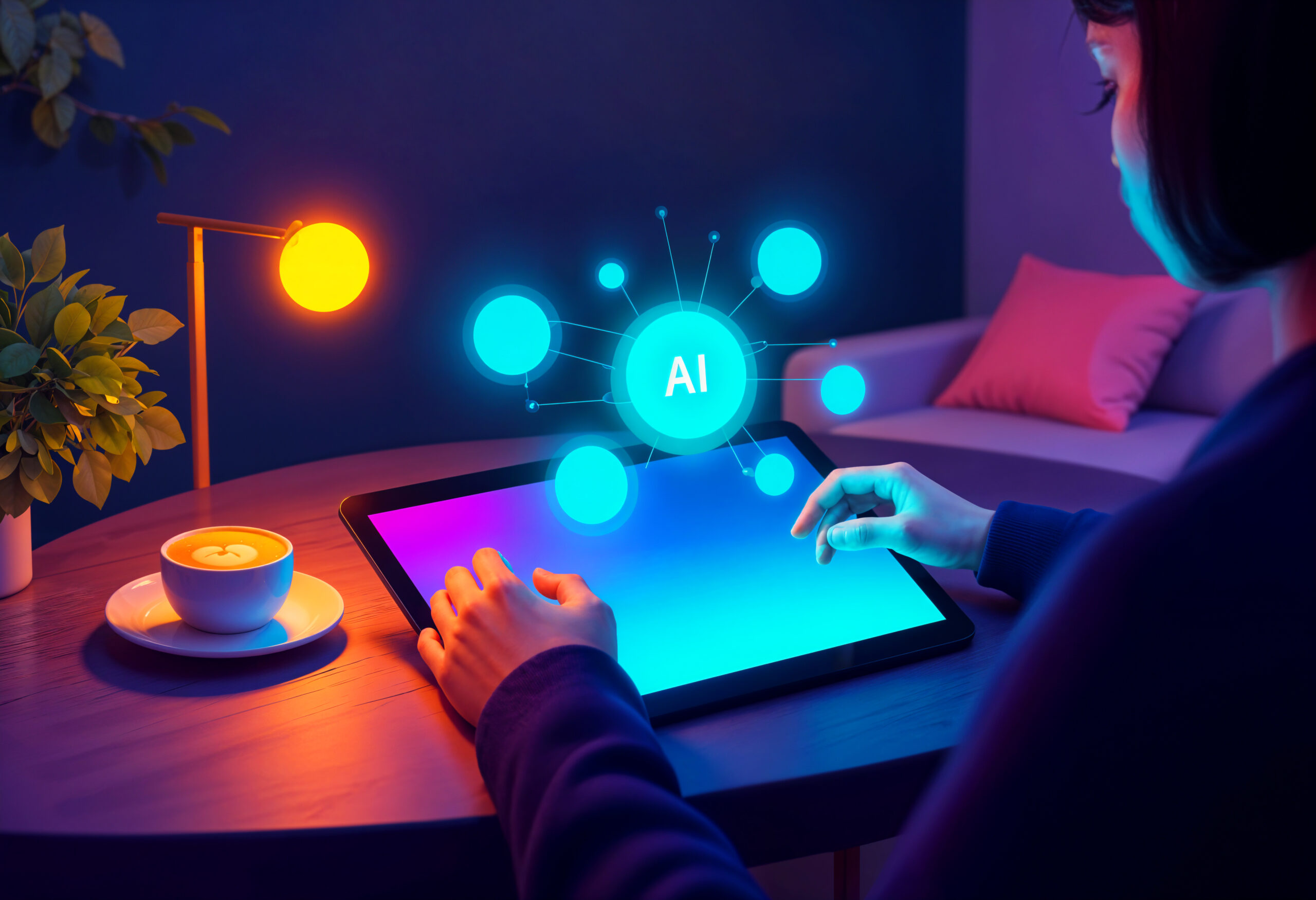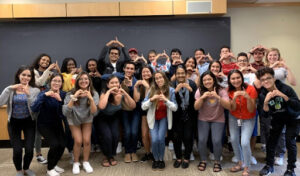Dating in the Age of AI: What It Means for Real-World Romance
As we stand at the crossroads of technology and human emotion, the way we approach dating and romance is undergoing a profound transformation. I, like many others, have witnessed how artificial intelligence (AI) is not just reshaping industries but also redefining the very essence of our personal connections. From dating apps powered by sophisticated algorithms to the growing trend of AI companions, technology is weaving itself into the fabric of our love lives in ways that are both exciting and concerning. In this article, we will explore together how AI is influencing modern dating, the rise of virtual companions, and what this means for real-world romance. Let’s navigate this fascinating yet complex landscape.
The Role of AI in Modern Dating
Dating apps have become the go-to platform for millions seeking romantic connections, and AI plays a pivotal role in their functionality. Platforms like Tinder, Bumble, and Hinge leverage AI to enhance user experiences in several ways:
- Matching Algorithms: AI analyzes vast amounts of user data—preferences, behavior, and interaction patterns—to suggest potential matches. This personalization aims to increase compatibility and improve the chances of finding a meaningful connection.
- Profile Optimization: Some apps use AI to recommend the best profile pictures or craft bios that are more likely to attract attention. For instance, Bumble’s AI analyzes user photos to suggest which ones are most engaging.
- Conversation Starters: AI can generate opening lines or suggest topics to break the ice, making it easier for users to start conversations. Tools like Rizz, an AI assistant for dating, help users compose replies based on previous interactions.
These features make dating more efficient and accessible, especially for those who find traditional approaches daunting. However, they also raise questions about authenticity. Are we letting algorithms dictate our romantic choices? And what happens when the AI’s suggestions don’t align with our true preferences? Despite these concerns, the use of AI in dating apps is transforming how we connect, with roughly 39% of Americans meeting their partners online in 2017, a trend that has only accelerated.
Virtual Romance on the Rise
One of the most striking developments in AI and romance is the emergence of AI girlfriend chatbots designed to provide emotional support, companionship, and even romantic interaction. Platforms like Girlfriend AI allow users to create personalized AI companions that can engage in conversations, remember preferences, and simulate emotional intimacy. For example, an AI girlfriend can be programmed to offer unwavering support, acting as a confidant for someone seeking a romantic connection without the complexities of human interaction.
- Why People Turn to AI Companions: Many users, particularly young adults, are drawn to AI companions as a way to combat loneliness or practice social skills in a low-stakes environment. For some, these digital entities offer a safe space to express themselves without fear of judgment. The average user is around 27 years old, though 18% of users are female, showing that this trend transcends gender.
- The Experience: AI companions are always available, never in a bad mood, and can be tailored to meet specific emotional needs. They can act as confidants, therapists, or even romantic partners, providing a sense of connection that feels real to some users.
However, this trend isn’t without controversy. Critics argue that AI companions might create unrealistic expectations for human relationships. After all, no human can match the perpetual patience and customization of an AI. Moreover, there’s a risk that over-reliance on these digital entities could lead to social isolation or reduced motivation to seek real-world connections. For instance, a user might confide in their AI companion about personal struggles, finding comfort in its programmed empathy, but this may not address deeper issues of loneliness.
The Impact on Human Relationships
The rise of AI in dating and romance has sparked a debate about its effects on human relationships. Let’s examine both sides:
- Positive Impacts:
- Combating Loneliness: For individuals struggling with social anxiety or isolation, AI companions can provide a sense of belonging. Studies show that younger adults, in particular, are turning to AI for emotional support.
- Social Skills Practice: Interacting with AI can help users build confidence in communication, serving as a stepping stone to real-world interactions.
- Emotional Support: AI companions can offer consistent, non-judgmental support, which can be especially helpful during tough times.
- Negative Impacts:
- Isolation: Over-reliance on AI might reduce the desire to engage with real people, potentially leading to further isolation.
- Emotional Dependency: Users might become overly dependent on AI for validation, which could hinder their ability to form genuine human connections.
- Unrealistic Expectations: AI companions are designed to be endlessly accommodating, which might set unrealistic standards for human partners.
A survey by the Institute for Family Studies found that 1 in 4 young adults believe AI partners could replace real-life romance, with 7% of unmarried or non-cohabiting young adults open to the idea of a romantic partnership with AI. This suggests a growing acceptance of virtual relationships, but it also highlights the need for caution. Similarly, research indicates that extensive engagement with AI companions might impede users’ ability to cultivate genuine, reciprocal relationships with other humans, as these often involve challenges that foster personal growth.
| Aspect | Positive Impact | Negative Impact |
| Loneliness | Provides companionship for those feeling isolated | May reduce motivation for real-world connections |
| Social Skills | Offers a safe space to practice communication | Could lead to dependency on AI for validation |
| Expectations | Can boost confidence in romantic interactions | May create unrealistic standards for human partners |
Ethical and Social Considerations
As AI becomes more intertwined with our romantic lives, ethical concerns come to the forefront:
- Privacy: Dating apps and AI companions collect vast amounts of personal data. How is this data used, and who has access to it? Users must be aware of the potential risks of sharing intimate details with algorithms.
- Authenticity: Can a relationship with an AI be considered genuine? AI cannot reciprocate emotions in the same way humans can, raising questions about the nature of these connections.
- Manipulation: There’s a risk that AI could be designed to exploit emotional vulnerabilities, especially in platforms that prioritize user engagement over well-being. For example, the Norton Cyber Safety Insights Report notes a rise in AI-fueled romance scams.
- Societal Norms: The normalization of AI relationships might challenge traditional views of love and partnership. Could we see a future where digital companions are as common as human partners?
Moreover, the commodification of relationships through AI raises concerns about the commercialization of human emotions. Are we risking the devaluation of genuine connection in pursuit of convenience? These questions demand thoughtful answers as we navigate the complexities of love in the digital age.
Future of AI in Romance
Looking ahead, the integration of AI into romance is likely to deepen further. Advancements in technology could lead to:
- Immersive Experiences: Virtual reality (VR) and augmented reality (AR) might allow users to have virtual dates or shared experiences with AI companions, making these relationships feel even more real.
- Long-Term Relationships: Could AI play a role in long-term partnerships? Some speculate that AI could act as mediators in couples’ therapy or even as additional partners in polyamorous arrangements.
- Cultural Shifts: As AI becomes more accepted, societal norms around love and commitment may evolve. In some cultures, AI romance is already seen as a response to social changes, such as increasing solitary lifestyles in countries like Japan.
However, these possibilities also raise complex questions. Will AI enhance our capacity for love, or will it dilute the depth of human connection?
Balancing Technology and Humanity
While AI offers exciting opportunities, it’s crucial to maintain a balance between technology and genuine human interaction. Here are some ways to navigate this balance:
- Use AI as a Tool: Leverage AI to facilitate connections, but don’t let it replace real-world interactions.
- Set Boundaries: Be mindful of how much time you spend with AI companions and ensure it doesn’t detract from human relationships.
- Cultivate Real-World Skills: Use AI as a practice ground, but remember that human relationships require unique skills like empathy and compromise.
- Stay Informed: Educate yourself about AI’s capabilities and limitations to make informed decisions about its role in your life.
Ultimately, technology should serve to enrich our lives, not replace the irreplaceable aspects of human connection. As we integrate AI into our romantic lives, we must prioritize authenticity and emotional depth.
Conclusion
In conclusion, the integration of AI into dating and romance presents a double-edged sword. On one hand, it offers unprecedented opportunities for connection and support, especially for those who might otherwise feel isolated. On the other hand, it poses significant risks to the authenticity and depth of human relationships. As we move forward, it is crucial for us to navigate this landscape with both enthusiasm and caution, ensuring that technology enhances rather than diminishes our capacity for genuine human connection. Let’s embrace the benefits of AI while remaining vigilant about its potential pitfalls, always prioritizing the irreplaceable value of real-world romance.














Post Comment